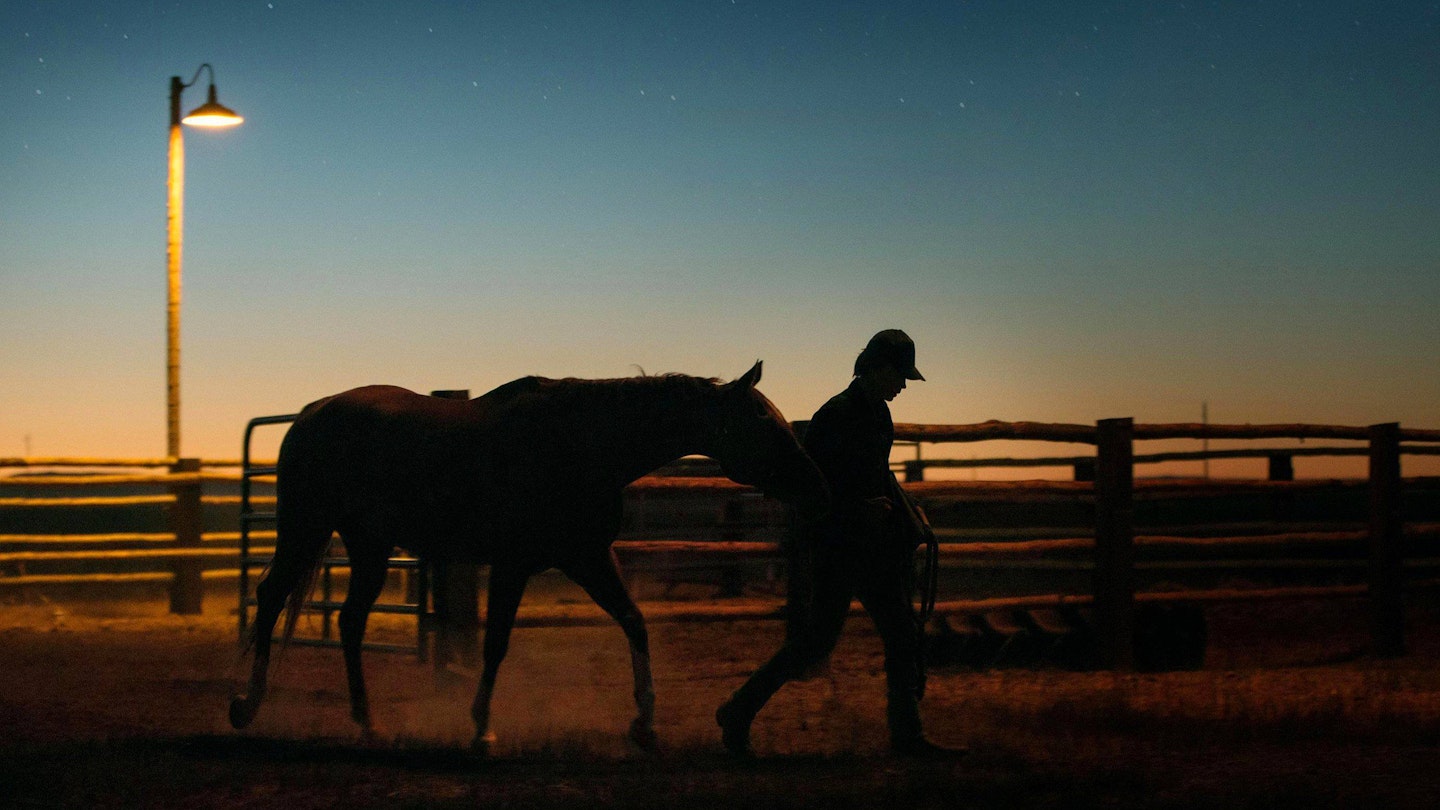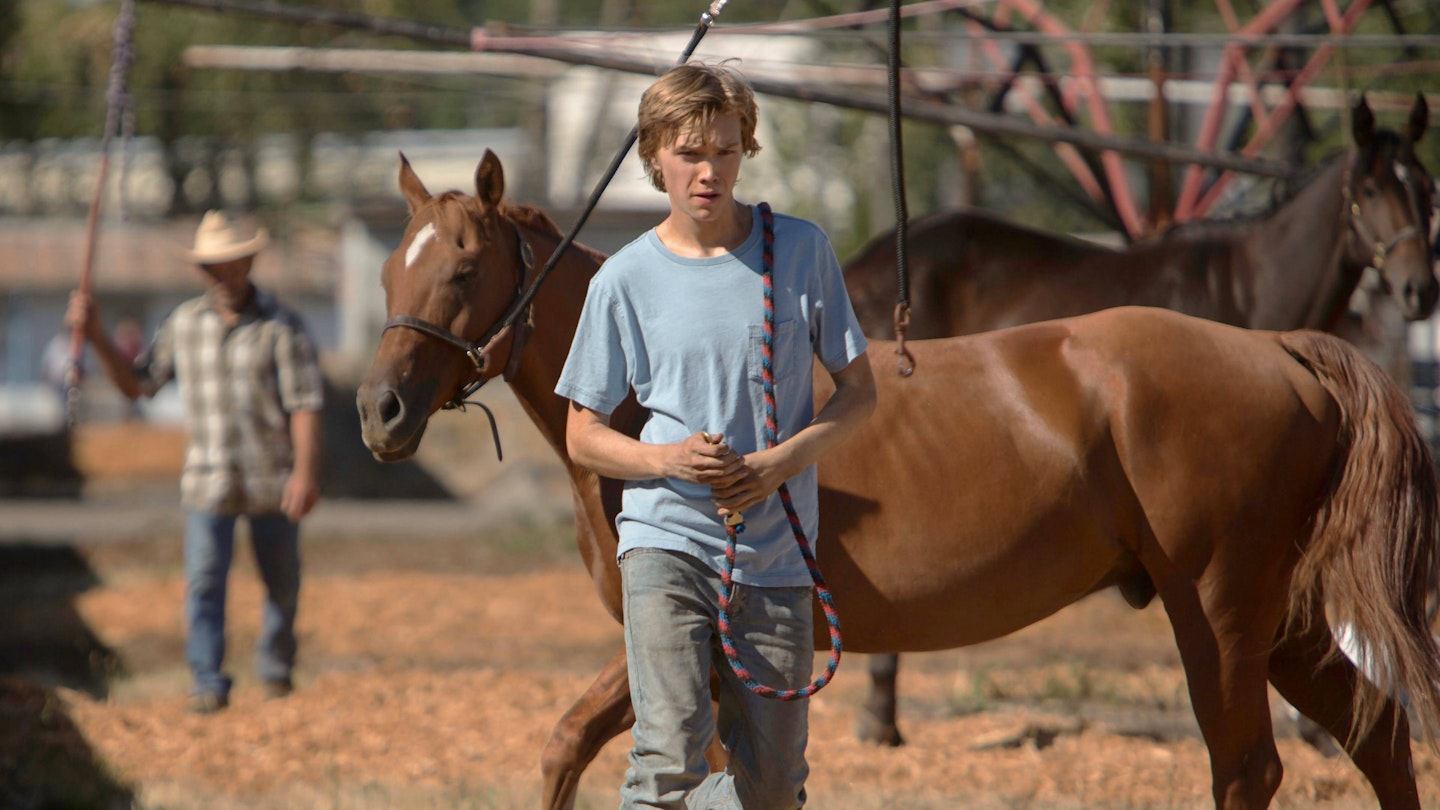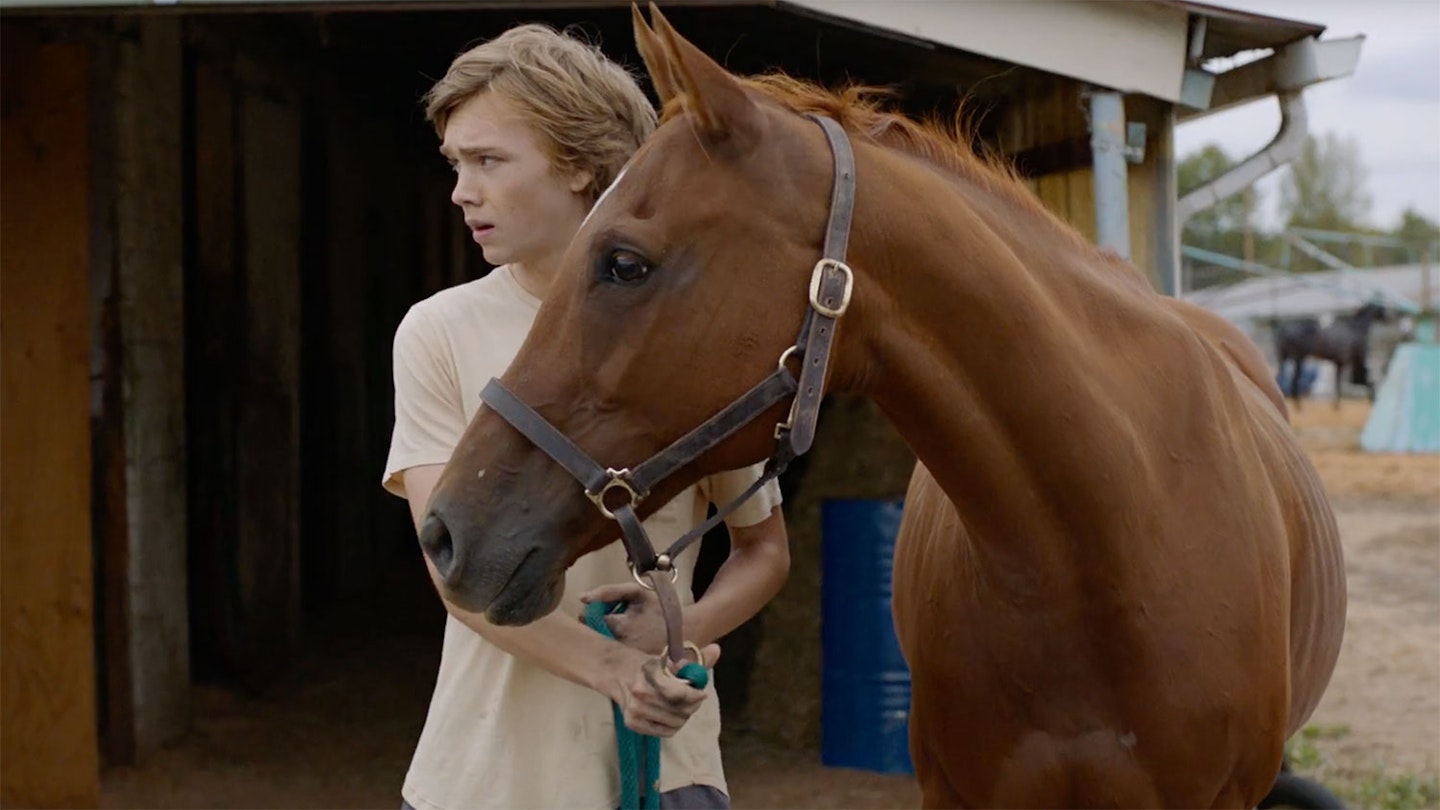The spirit of John Steinbeck courses through Andrew Haigh's latest film, an adaptation of a Willy Vlautin novel about how humankind survives despite being so `weak and sick and ugly and quarrelsome'. However, echoes of The Misfits, Au Hasard Balthazar and Wendy And Lucy can also be detected, as Haigh makes a decisive move away from the British provincial milieux of Weekend and 45 Years.
Forced to follow wastrel father Ray (Travis Fimmel) to Oregon, teenager Charley Thompson (Plummer) is drawn to the Portland Downs racetrack, where he befriends shifty trainer Del (Steve Buscemi), pragmatic jockey Bonnie (Chloë Sevigny) and Lean On Pete (Starsky), a five year-old quarter horse who is just one bad race away from being sent to a Mexican slaughterhouse. When the inevitable happens to both Ray and Pete, the motherless Charley hits the highway in the hope of finding his estranged aunt.
So far, so standard rite-of-passage road movie. But Haigh isn't interested in generic tropes and weepie platitudes. Instead, he keeps his distance from horse and boy and allows the latter to learn from his mistakes, as he gets caught dining and dashing, accepts the discomfiting hospitality of a couple of war veterans and falls foul of a drunken drifter. Yet there isn't a hint of pathos, as the stoic Charley ploughs on across a wilderness that forever emphasises his insignificance.

The cross-country segment lacks the intimacy and intensity of the Portland sequences, in which Ray and Del make botched macho attempts to mentor the trusting Charley. But Magnus Jønck's sublime photography enables Haigh to cast a humanist eye over Charley's plight and a little-seen aspect of the American Dream. The supporting cast respond splendidly to the low-key characterisation, but the picture rests on Plummer, who rolls impassively with the punches until he breaks down harrowingly at journey's end.


